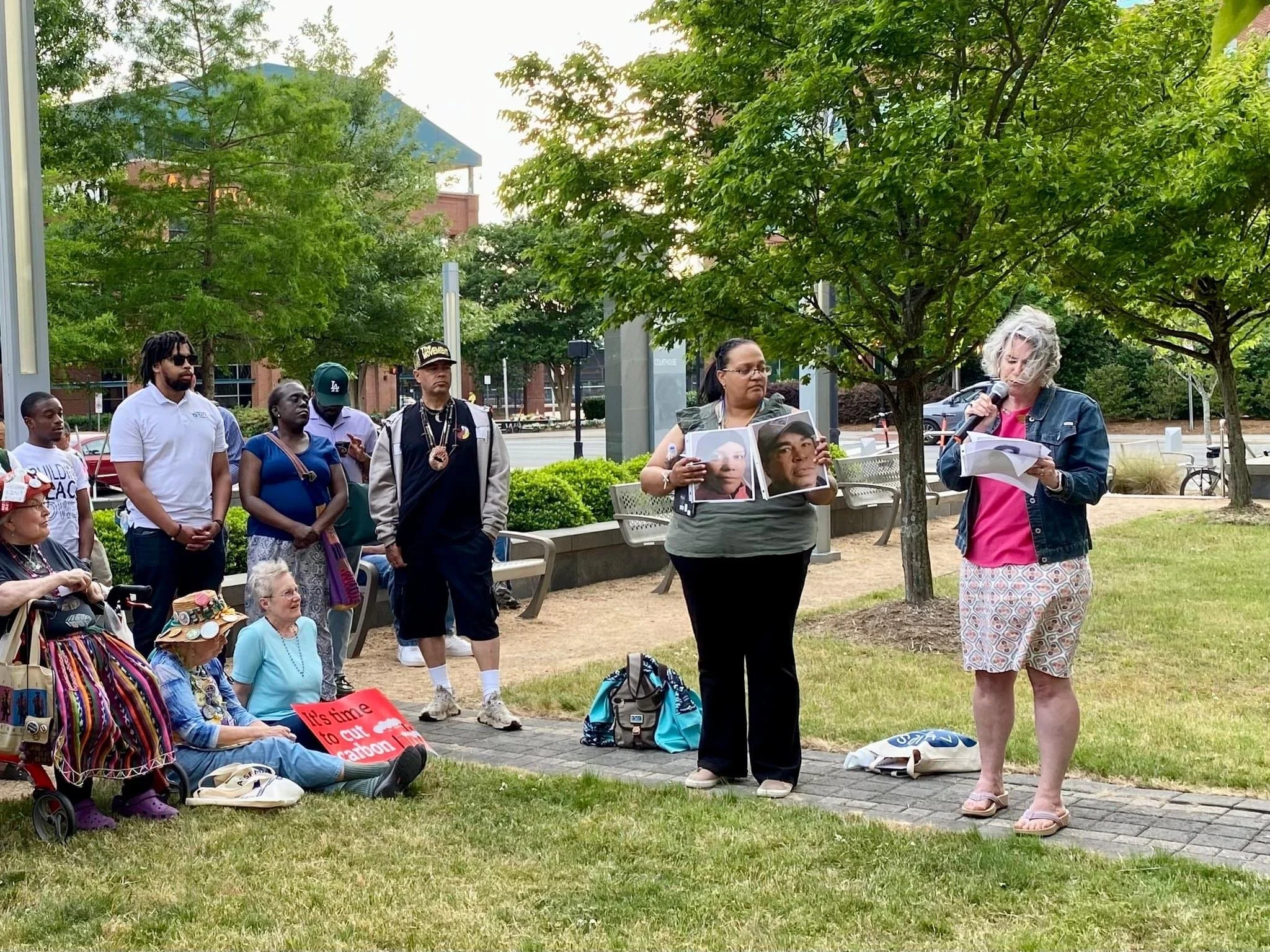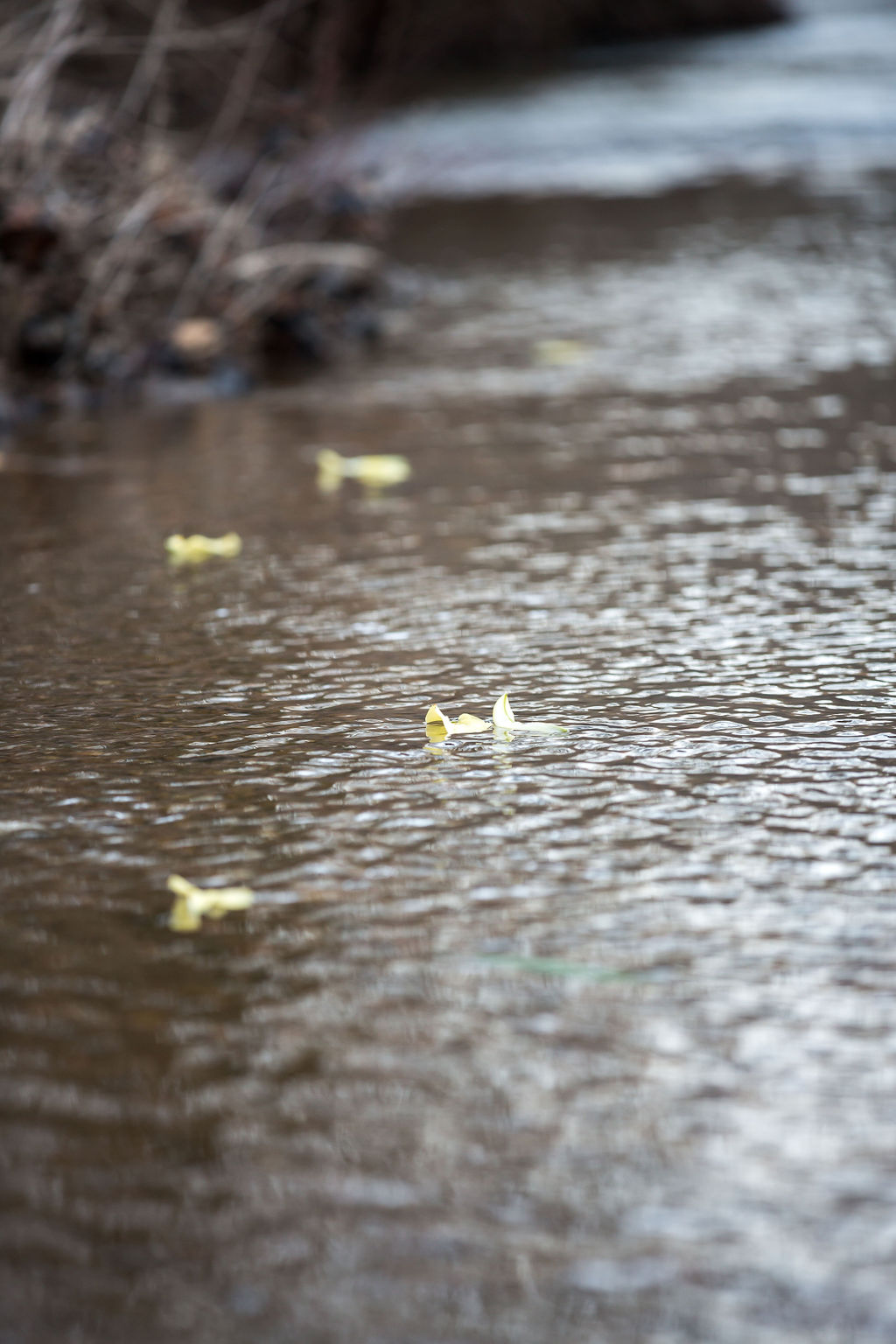I still cannot believe that we have lost David Hairston, The Lilies Project Community Partner. I had the honor and privilege of sharing some personal moments with David at the funeral service, which was a beautiful Homegoing Celebration. These are my words:
Good Afternoon. My name is Caroline Rutledge Armijo. I am the director of The Lilies Project for which David was my community partner.
First I want to thank Sandra and the family for inviting me to speak today. My many prayers are with you through this time. It is a great honor and privilege to share about my dear friend, David, whom I will greatly miss.
I first met David through the coal ash movement here in Walnut Cove. It quickly became a shared passion of ours. When given the opportunity to apply for the funding which resulted in The Lilies Project, David was the obvious choice as the lead community partner. The Lilies Project was an opportunity to move beyond advocating for the coal ash clean up. We had three primary goals: FIRST to advocate for clean up coal ash and impact policy, SECOND to create art out of coal ash and identify special places in the area, and THIRD to build community. David was the perfect partner to lead the way. More than anything, this was our chance to highlight what is extraordinary about Walnut Cove and SE Stokes County and her people.
David was always focused on the children and what he wanted them to experience. Through a sparkle in his eyes, he shared so many wonderful stories about his childhood in Stokes County. He had a true gift for building community and had a clear vision for the future here in this community that we must continue to work together to fulfill.
David was adamant that we create a documentary on the life of John L. Hairston so that every student in Stokes County would know the history of the integration of the schools and the town of Walnut Cove. When we debuted the film, we celebrated with a weekend of music, laughter and David’s delicious fish fry. On the third day, John L’s birthday, former VP Al Gore and Rev Barber showed up. David stood by their side and shared a moving account of the suffering he had heard from his family and friends for all of the world to hear, broadcast from the boat dock at Belews Lake.
Following the Celebrating Courage Weekend, we shifted into a more playful mode of celebrating the legendary Gymnastics Shows at Southeastern under the direction of Jane and Rick Williams. David participated in the first ever gymnastics show and my class was the last. We were bookends to a time when everyone in the community showed up to watch the amazing talents of all of the students working together in unison.
Through all of this, we were also dreaming up ideas of what we hoped to see for the future of Walnut Cove. Art throughout the town, a greenway connecting the Walnut Tree into Walnut Cove, and of highest priority, a community center honoring the legacy of David’s beloved mother, Mrs. Mildred Hairston. We already see his vision in the ground at the Walnut Tree playground, his pride and joy.
David’s big heart contained a clear vision and passion for Walnut Cove. It is reflected in the words he spoke every chance he got and the life he lived. The way he was determined to annex the Walnut Tree into the town, despite consistently being turned down. He served on numerous boards protecting the environment of the place he loved with Appalachian Voice, ACT against Coal Ash, Residents of Coal Ash Clean up and The Lilies Project. He also served on the board of the Walnut Cove Public Library and the Hanging Rock State Park Steering Committee. David visited youth organizations to share about the harms of tobacco, asking children to vow not to use tobacco products, which also gave the group a donation of $1000.
My favorite moments with David were more personal. He soon found a place on my phone’s favorite list, right under my Dad. David was truly the big brother I never had. Always encouraging and curious. Excited to share his favorite memories, on more than one occasion, we walked down through the woods in the Walnut Tree, to see the ford where he road dirt bikes where Lick Creek and Town Fork Creek meet. He showed me the Indian burial ground where his ancestors rest. He showed me the railroad trellis, even though I was too scared to go down the bank of the tracks. He told me about the chimney of the abandoned glass house behind his mother’s home. (I wasn’t willing to walk through the briars!) He took me to Danbury to see the little church he grew up in and loved. He told me about how he got candy everyday from the store that is now ArtsPlace in Danbury. He talked about roller skating in downtown Walnut Cove and how the Palmetto was integrated for the kids to watch movies together once a week.
David was a giant man, who was truly a child at heart. He was passionate about doing everything he could to create those wonderful, playful opportunities for the children of Walnut Cove. David has a very clear vision of what he wants to see happen in our community. It is our turn to step up and work together. To Build his dreams, all of his dreams. And to also be a watch dog for everyone in the area from polluters like Duke Energy. We must listen to the concerns of our neighbors and take action. That was what David was all about. He left the world way too soon. But he is with us in spirit and guiding us to fulfill his vision.
I love you, David. May you enjoy deep rest for you have worked hard. May you know that your mother is so proud of you and that we all are.
















